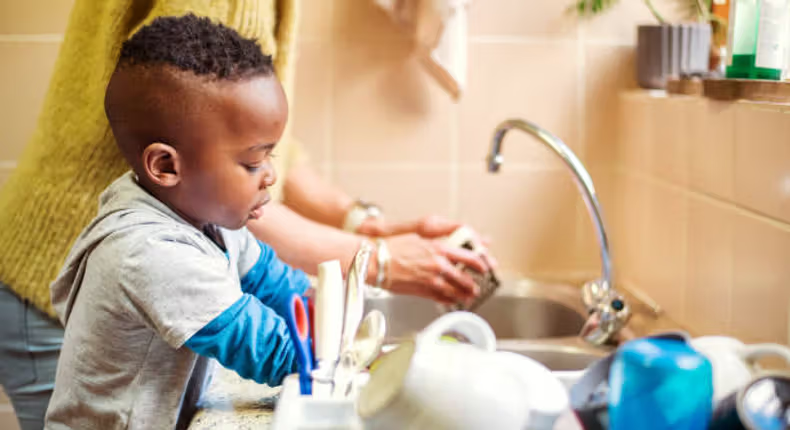The discussion on involving male children in household chores is gaining momentum in Nigeria, with various stakeholders emphasizing the importance of breaking traditional gender stereotypes. Many Nigerians, including activists, parents, and educators, are advocating for a shift away from the practice of assigning chores primarily to girls while boys engage in recreational activities.
Benjamin Obasi, from Every Life Matters Foundation, highlighted the necessity of teaching responsibility and discipline to boys through household tasks. He pointed out that neglecting the upbringing of boys in domestic responsibilities could lead to negative outcomes, suggesting that proper training for boys would prevent such issues.
John Atomore, an activist, echoed this sentiment, emphasizing that household chores are essential life skills that are not gender-specific. He argued that involving boys in chores helps prepare them for independent living and fosters a sense of satisfaction and responsibility.
Bisiola Adeyanju, a mother, stressed the importance of starting early to instill a sense of responsibility in boys. She emphasized that chores should be seen as a normal part of life for both genders, aiming to reduce gender biases from an early age.
Ezeabasili Okwudili, a civil servant, shared his personal experience of being involved in household chores since childhood. He highlighted the benefits of such involvement, including promoting equality, teaching essential life skills, and preparing boys for future responsibilities.
Mmesomachi Anyanwu, a teacher, suggested practical ways to integrate boys into household tasks, such as assigning them responsibilities for their toys and involving them in basic chores like dishwashing and laundry. He underscored that these activities are fundamental for adult life and contribute to the upkeep of a home.
Overall, the consensus among these voices is that involving male children in household chores not only promotes equality but also equips them with essential life skills and fosters responsibility and independence. This shift in mindset and practice is seen as crucial for shaping more balanced and equitable gender roles in Nigerian society.
